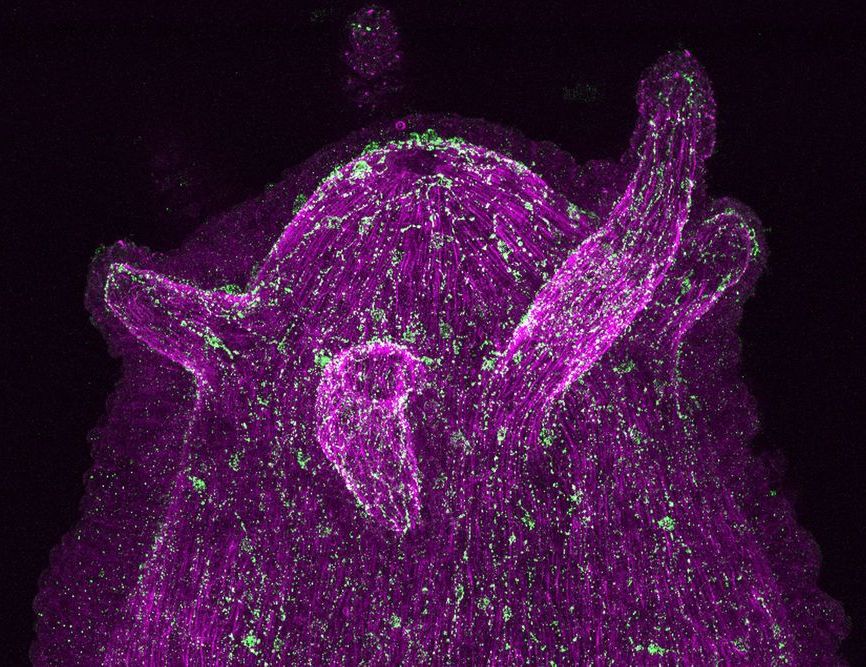Various diseases of the digestive tract, for example severe intestinal inflammation in humans, are closely linked to disturbances in the natural mobility of the intestine. What role the microbiome—i.e. the natural microbial community colonizing the digestive tract—plays in these rhythmic contractions of the intestine, also known as peristalsis, is currently the subject of intensive research. It is particularly unclear how the contractions are controlled and how the cells of the nervous system, that act as pacemakers, function together with the microorganisms.
A research team from the Cell and Developmental Biology group at Kiel University has now succeeded in demonstrating for the first time, using the freshwater polyp Hydra as an example, that phylogenetically old neurons and bacteria actually communicate directly with each other. Surprisingly, they discovered that the nerve cells are able to cross-talk with the microorganisms via immune receptors, i.e., to some extent with the mechanisms of the immune system.
On this basis, the scientists of the Collaborative Research Center (CRC) 1182 “Origin and Function of Metaorganisms” formulated the hypothesis that the nervous system has not only taken over sensory and motor functions from the onset of evolution, but is also responsible for communication with the microbes. The Kiel researchers around Professor Thomas Bosch published their results together with international colleagues today in the journal Proceedings of the National Academy of Sciences (PNAS).
